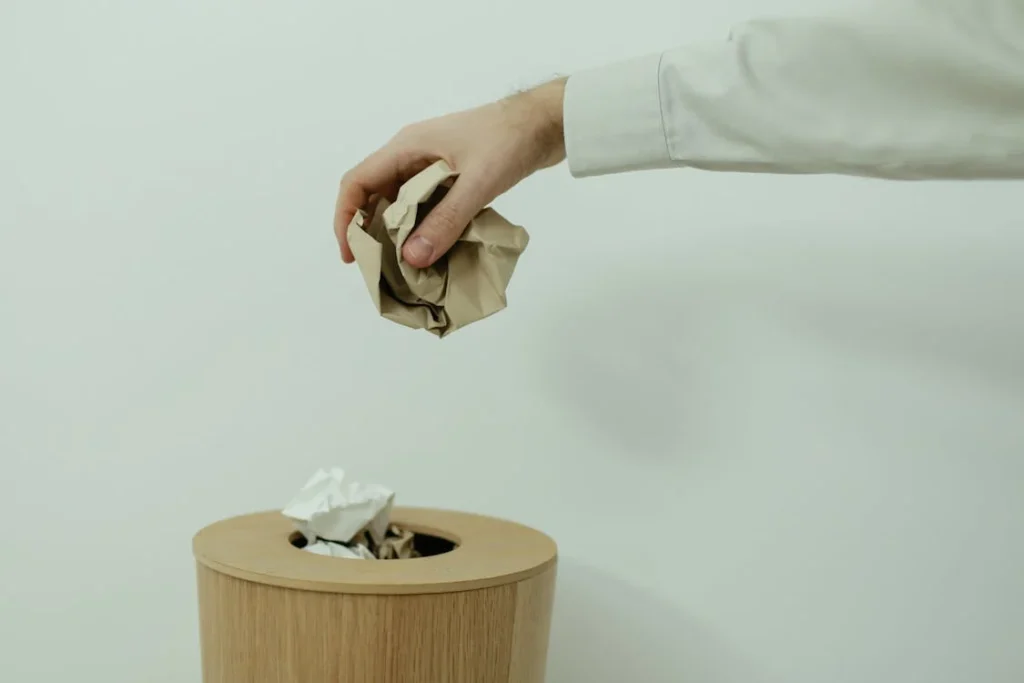When was the last time you walked into a clean, organized room and instantly felt at ease? On the flip side, have you ever noticed how being surrounded by piles of clutter leaves you feeling overwhelmed, anxious, or even stuck? It’s no coincidence. Our environment plays a huge role in shaping our mental and emotional well-being. Decluttering your space isn’t just about tidying up, it’s about creating a sanctuary that supports clarity, focus, and peace of mind.
The Psychology Behind Clutter
Clutter is more than just stuff scattered around. Psychologists often describe clutter as “visual noise.” It’s a constant reminder of disorganization and unfinished tasks. Every time you see that pile of paperwork, that overflowing laundry basket, or the junk drawer that won’t close, your brain registers it as something that needs attention. This can lead to feelings of guilt, anxiety, and even shame, sometimes without you fully realizing it.
Studies have shown that people living in cluttered homes have higher levels of cortisol, the stress hormone. In contrast, organized and clean spaces are linked with better moods, improved productivity, and even healthier habits.
Simply put: A cluttered space can create a cluttered mind.
How Your Environment Affects Your Wellbeing
Our surroundings silently influence our thoughts, feelings, and behaviors every single day. Here’s how:
1. Mental Clarity and Focus
Imagine trying to work at a desk covered in papers, coffee cups, and random gadgets. It’s distracting, right? Clutter competes for your attention, making it harder to focus on what actually matters. A clean, organized space, however, signals to your brain that it’s time to concentrate.
Decluttering removes these distractions and gives your mind the breathing room it needs to think clearly and creatively.
2. Stress and Anxiety Levels
Living in chaos can make you feel like you’re constantly behind, even if you’re on top of your responsibilities. Visual clutter sends a message to your brain that your work is never done, contributing to feelings of anxiety and stress. On the other hand, a tidy environment promotes a sense of control and calm.
A study from UCLA’s Center on Everyday Lives of Families found a direct link between the number of objects in a home and the stress levels of women living there. The more clutter, the higher the stress.
3. Sleep Quality
Yes, even your sleep can be affected by clutter. A messy bedroom can make it harder for your mind to wind down at night. When your space feels chaotic, your brain stays alert, scanning for “unfinished business.” A serene, minimalist bedroom environment, however, signals relaxation and can significantly improve your sleep quality.
4. Self-Esteem and Confidence
Your home is a reflection of you. If your environment feels neglected, it can subtly impact how you feel about yourself. Organizing your space can give you a sense of accomplishment, pride, and empowerment, boosting your self-esteem and encouraging positive momentum in other areas of your life.
Decluttering as Self-Care
Decluttering is not just a chore—it’s a form of self-care. It’s about honoring yourself by creating an environment where you can thrive. When you choose to keep only the things that serve you, you send yourself a powerful message: You deserve to live in a space that feels good.
Self-care isn’t just spa days and meditation. It’s also taking responsibility for your environment and recognizing the impact it has on your mental and emotional health.
How to Start Decluttering (Without Overwhelm)
If the idea of decluttering your whole home feels daunting, don’t worry. You don’t have to do it all at once. Start small, stay consistent, and celebrate every little win. Here are some simple tips to help you get started:
1. Pick One Small Area
Start with a single drawer, shelf, or countertop. Set a timer for 15 minutes and work only in that space. Decluttering small areas can give you quick wins and build momentum.
2. Ask the Right Questions
When deciding whether to keep something, ask yourself:
- Do I use this regularly?
- Does this item bring me joy or serve a purpose?
- Would I buy this again today?
If the answer is “no,” it might be time to let it go.
3. Create “Keep,” “Donate,” and “Toss” Piles
Sorting items into these categories makes decisions easier. Be honest with yourself, and remember: every item you release is creating more space for peace and clarity.
4. Focus on Progress, Not Perfection
Decluttering isn’t about having a Pinterest-perfect home; it’s about creating an environment that feels good to you. Some areas might take longer than others, and that’s okay.
5. Establish New Habits
Once you’ve decluttered, maintain your newfound peace by establishing simple habits:
- Do a 10-minute tidy-up at the end of each day.
- Adopt a “one in, one out” rule for new items.
- Regularly reassess spaces that tend to collect clutter.
Decluttering Is a Journey, Not a Destination
Decluttering isn’t something you do once and forget about. Life is dynamic, and so are our spaces. Regular check-ins with your environment help ensure that it continues to support your mental and emotional well-being.
Remember: decluttering is an act of self-respect and mindfulness. It’s a physical manifestation of setting boundaries, prioritizing what matters, and making space for your best self to shine.
Your outer world profoundly affects your inner world. By intentionally clearing your space, you also clear mental clutter, making room for more peace, creativity, and joy. It’s not about having a “perfect” home, it’s about creating an environment that reflects and supports the life you want to live.
Start small. Be patient with yourself. Celebrate every drawer, every surface, and every corner you reclaim.
Decluttering your space isn’t just about getting rid of things. It’s about making room for you.


